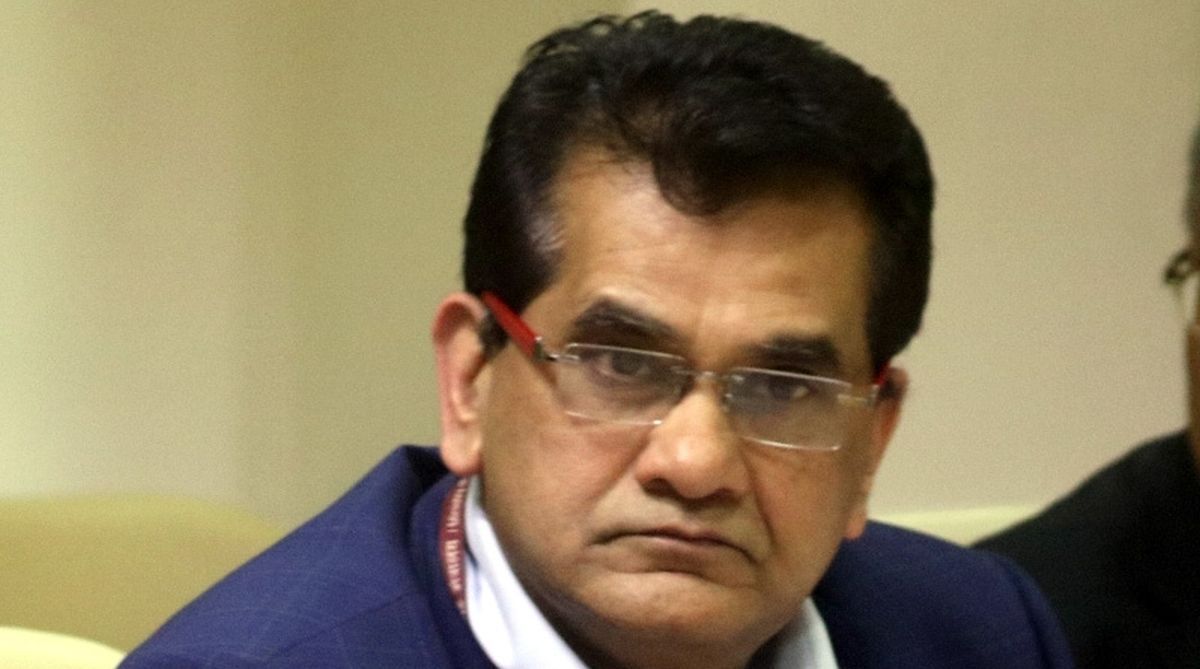Iran rejects Macron’s accusation of involvement in Ukraine conflict
Iran has rejected French President Emmanuel Macron's remarks that Russia has used Iranian military equipment against Ukraine.

NITI Aayog CEO Amitabh Kant. (File Photo: IANS)
Shashi Tharoor, the leader of the Congress, lauded Amitabh Kant, India’s G20 Sherpa, on Saturday for his “negotiations” with China and Russia to secure an agreement on a unified declaration from G20 leaders outlining the group’s position on the Ukraine war. The Lok Sabha member from Kerala stated on his official X (formerly known as Twitter) account that it is a “proud moment” for India at the G20.
Well done @amitabhk87! Looks lile the IFS lost an ace diplomat when you opted for the IAS! "Negotiated with Russia, China, only last night got final draft," says India's G20 Sherpa on 'Delhi Declaration' consensus.
A proud moment for India at G20! https://t.co/9M0ki7appYAdvertisement
— Shashi Tharoor (@ShashiTharoor) September 9, 2023
Advertisement
The G20 leaders were divided on how to respond to Russia’s attack on Ukraine, say sources. He said that over 200 hours of “nonstop negotiations” were required to ensure a joint communique. He said that the declaration was the outcome of numerous rounds of negotiations; the consensus was only reached late on Friday night. These negotiations included bilateral meetings with Russia and China as well as consultations with emerging nations about the economic effects of the conflict.
The former head of Niti Aayog, Mr. Kant, added that the secret was “working in partnership with sherpas” and that the G7 countries were forced to the negotiating table through the combined efforts of emerging markets, led by India, Brazil, South Africa, and Indonesia, and later Mexico, Turkey, and Saudi Arabia.
Nearly 200 hours were spent in uninterrupted negotiations, and after the Bali paragraph collapsed, we fought for nine months. Then, during a meeting, I wrote down 15 fundamental guidelines that we had to abide by on a blank screen. Then, every sherpa joined in and shared their opinions, according to the G20 Sherpa from India.
“Based on this, we created a first draft… nobody really expected we would arrive at a consensus. The first draft triggered a number of reactions… people were pessimistic that we could every arrive at a consensus on Russia and Ukraine because multilateral forums across the world had failed to do so,” he added.
Advertisement
Iran has rejected French President Emmanuel Macron's remarks that Russia has used Iranian military equipment against Ukraine.
India’s fighter jet procurement strategy is at a crossroads, caught between immediate operational needs and long-term self-reliance goals.
External Affairs Minister S. Jaishankar on Saturday inaugurated a new Consulate General of India in Manchester, the United Kingdom, and said that "India was making up for many things that perhaps the country could and should have done earlier".
Advertisement
